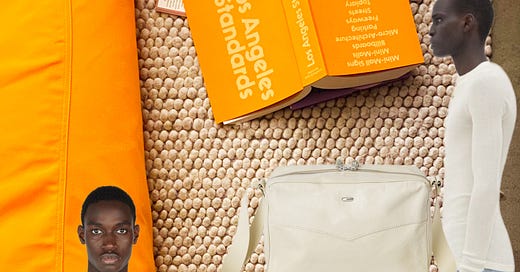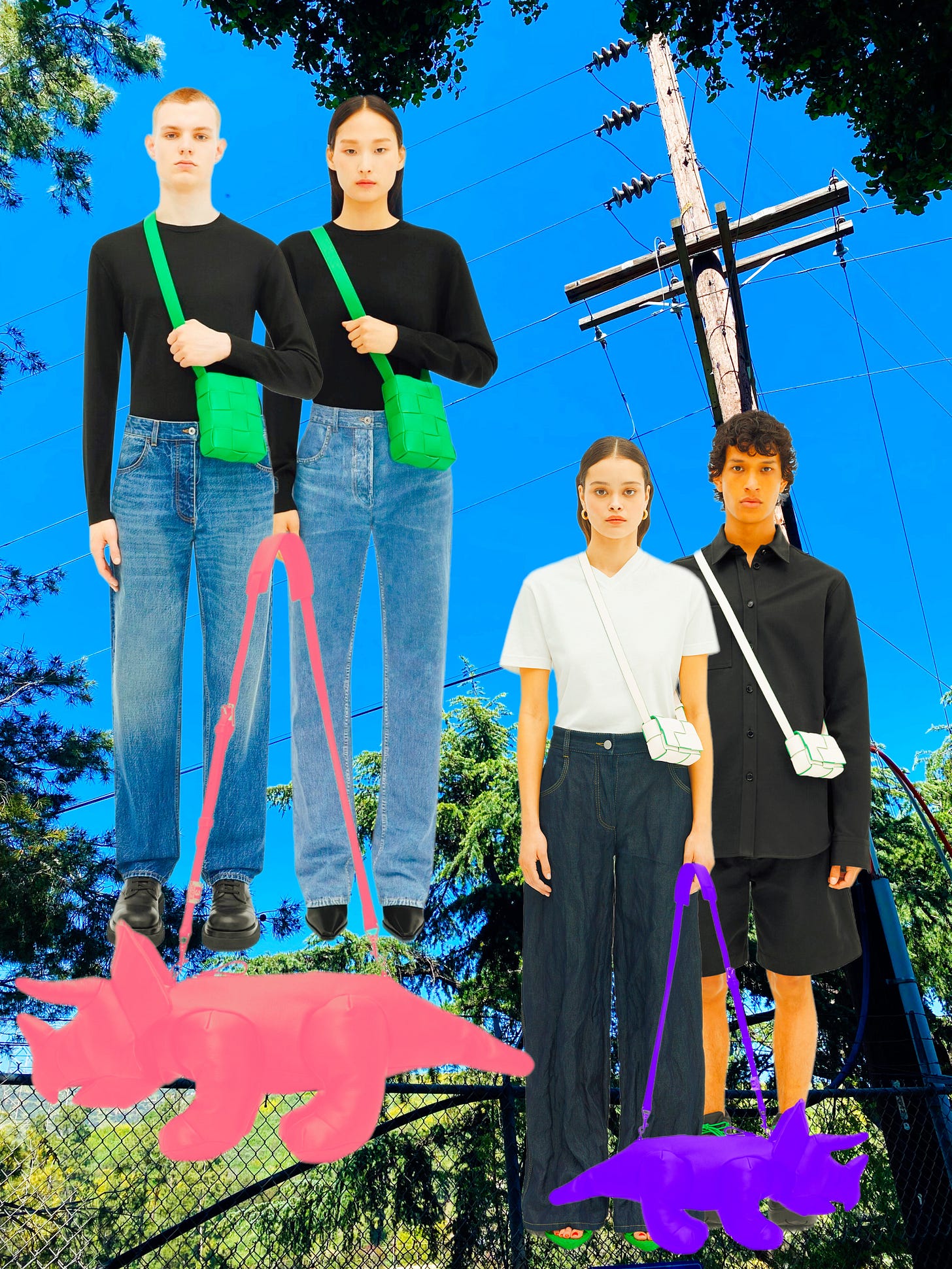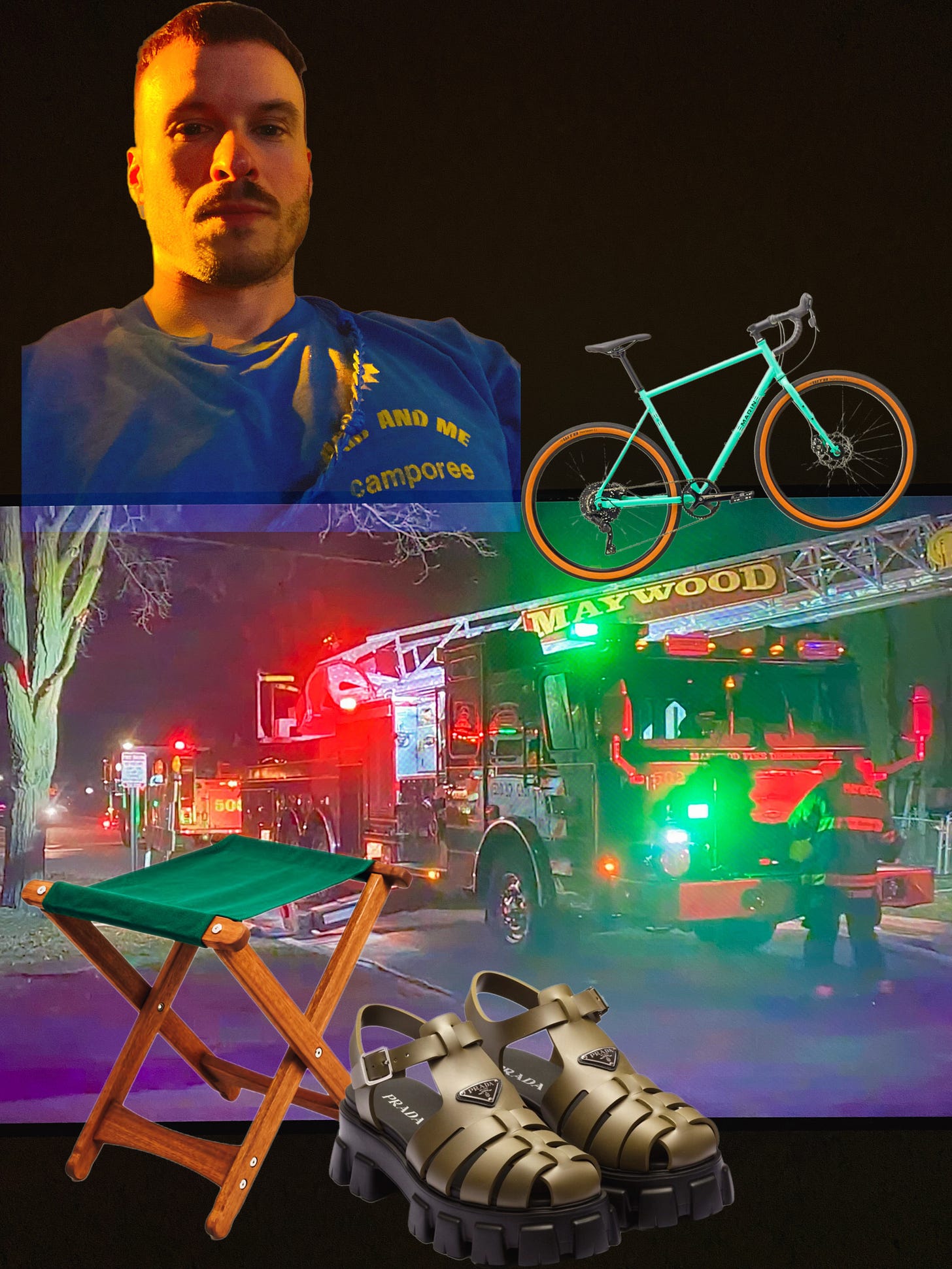The concept has bubbled up enough times in recent weeks, I knew I had to do it.
Introducing: econami book club!
Well more of a reading list.
I don’t plan to organize much, I just wanted to bullet out some of the best books I’ve found lately, and a brief explanation of why I loved them.
I will likely reference each of them in upcoming posts if you want to “follow along.”
I am also including a Goodreads link for each, but I encourage you to find them at your nearest independent bookseller or library instead of ordering them online.
Better yet, buy and then pass on to someone in need.
Here goes…
Spiritual, Personal Philosophical
Nonfiction, Observational, Societal Philosophical
Creativity
these are collages I make, no direct relation to the content other than pleasant visual breaks
Why Smart People Hurt, Eric Maisel
Our world exalts the pursuit of profits and diminishes the empathetic, creative, and rational mind.
In Why Smart People Hurt, Dr. Eric Maisel explains why the great intellectuals and intuitives among us are often marginalized, and how we can approach an imperfect world with humility and resolve to be happier and healthier.
The Law of Positivism, Shereen Öberg
A friend gave me this book, and I have given it to several of my friends in turn. One of them said to me: “I’m so over all this Brené Brown toxic positivity!”
In The Law of Positivism, Shereen Öberg makes the case for training oneself to emphasize the positives in life, which doesn’t mean ignoring negative situations, emotions, or moments of struggle. It means choosing to be grateful, to clear your mind with meditation and mindfulness such that clarity can arrive.
When we practice gratitude, when we acknowledge and forgive our human imperfections, and when we are honest with ourselves about our feelings, desires, and fears, we can work to understand these things better, recognize unhealthy patterns, and work to create more harmony in our lives.
The Artist’s Way, Julia Cameron
Goodreads calls this book “seminal.”
Equal parts textbook and self-therapy handbook, it provides step-by-step commentary and exercises designed to help readers unlearn restrictive beliefs, reacquaint with their inner child, and return to living a creative life—something we are all capable of and allowed to do, no matter our career path, title, or age.
I have always struggled with impostor syndrome, never believing my words, designs, and inner voices are valid and “of quality,” so The Artist’s Way has felt to me like a precious bible of recovery and catharsis.
All About Love: New Visions, Bell Hooks
Throughout my life, I’ve always found it relatively easy to connect with the like-minded, make friends, and build networks through empathy, kindness, and vulnerability.
The same is not true for my romantic life, which for some reason is more fraught.
In All About Love, Bell Hooks details the ways that our society and modern lives are designed to make us see genuine love and compassion as weakness, and how capitalism and patriarchy work to undermine the love and reverence we have for ourselves and each other, individually and collectively.
The way to live better is to lead with love, and the way to find ourselves happier and more satisfied in life is to love more—toward ourselves and toward everyone else.
The Seat of The Soul, Gary Zukav
With a foreword penned by none other than Oprah Winfrey, the kind of public figure and celebrity that I can actually respect, I knew this book had to be incredible—and it is.
Have you ever thought about your soul? Considered what’s good for your soul and what’s not? Understood which moments in life are soul-serving and which are ego-driven?
The Seat of the Soul will teach you, and you’ll forever see your daily existence differently.
Reading this book felt like flooding my overactive, reactive, fiery brain with soothing, cooling salve.
“matching couples walking their triceratopses”
The Miracle of Mindfulness, Thich Nhat Hanh
I learned the value of mindfulness from a good friend whose business is helping people cultivate mindfulness, detox from digital overload, and more easily step into “flow” through writing, crafting, creating, and doing.
The Miracle of Mindfulness teaches us how to view meditation and mindfulness as ultimate states of being, which we can practice at almost any moment of our daily lives, through deliberate breathing and outward compassion toward those around us.
Training the Mind, Chögyam Trungpa
With similar points and messages as The Artist’s Way, All About Love, and The Seat of the Soul, albeit with a Buddist perspective of service toward others, Training The Mind espouses (1) ego death and (2) cultivating a loving and compassionate mindset toward everyone and everything external.
I picked it off the book shop shelf and was intrigued by the first line of its back cover synopsis: “Using this book could be hazardous to your ego!” And although I’m not quite finished with it, I sense it will help me be a happier, healthier person and a freer artist.
The Evolution of Beauty, Richard O. Prumm
Admittedly something of a non-sequitur here, The Evolution of Beauty presents an alternative view of earth’s biological processes, vis à vis Darwin’s “survival of the fittest” as our only explanation for how both humans and animals have changed over many hundreds of thousands of years.
It’s a fascinating, subversive look at how female choice and sexual agency have actually caused evolutionary quirks in males, rather than the other way around—and how lessons from the animal world relate to human existence.
Everything NOW, Rosecrans Baldwin
Rosecrans Baldwin posits that Los Angeles is as much a city-state as it is a simple metropolis, and that in many ways it represents “The American experience” better than anywhere else in the United States.
Both his and my own thematic hypothesis is that living in L.A. is living on the precipice, figuratively and literally.
From issues like homelessness and housing, the constant inflow of domestic and international dreamers seeking stardom, and the precariousness of our natural environment, life in Los Angeles is a cacophony of beauty, ugliness, inspiration, and disappointment.
Everything NOW gives good context to why all of the other books on this list have been so instrumental to me the last few years.
self-portrait
The Society of the Spectacle, Guy Debord
This is another title that simply piqued my interest as I was browsing the bookstore.
Published originally in 1967, Guy Debord’s The Society of the Spectacle still holds today as an explanation and critique of our postwar society, arranged around capitalist ideals of hierarchy and patriarchy.
Debord was a French Marxist who postulated, as Goodreads puts it:
Alienation could be accounted for by the invasive forces of the 'spectacle' - "a social relation between people that is mediated by images." Central to this school of thought was the claim that alienation is more than an emotive description or an aspect of individual psychology; rather, it is a consequence of the mercantile form of social organization which has reached its climax in capitalism.
To me, this rang true because so many people are currently experiencing the effects of alienation like depression and loneliness, thanks to social media, technology, and the capitalist fantasy of individualism.
Catching the Big Fish, David Lynch
Admittedly less of an academic study and more of a coffee-table, random flip-through for inspiration, I nevertheless appreciate David Lynch’s simple anecdotes about meditation, flow, and creativity.
Even if you’re unfamiliar with Lynch’s extensive film work, Catching The Big Fish gives anecdotal examples of how mindfulness, gratitude, and the inspirational and iterative processes really work for anyone involved in complex, unstructured, and expressive creative work.
In Praise of Failure, Costică Brădățan
This is another one I haven’t finished just yet, but it’s shaping up to be a great unpacking of success vs. failure in life.
I have always been preoccupied with being good at anything my name is attached to, rather than simply trying and potentially failing at something. I detest being shit at something, so much so that I will avoid it entirely if I predict failure.
This fear of failure prevents me from taking risks, attempting new, exciting, and scary things, all of which add up to less expansion and more fear-driven decisions.
I’m hoping some of these stories from Costică Brădățan give me greater courage to see failure as a positive and see failure as a necessary part of growth and expansion, in order to achieve what each of us is here on earth to do: evolve!
As I said, my intent is to reference these books in the coming months of posts, so if you’re interested in any of them based on a quick summary, read them and let me know what you think.
I am so grateful to those who’ve given me some of these books or suggested them, and I hope you find value in them like I did.
A big thanks to everyone who’s subscribed. Your support is an incredible motivator to keep going! :) -A







This is an excellent list! The Artist's Way changed my life 20 years ago. I'm so proud of all the ways you are creating and expressing yourself in the world! 💕🙏